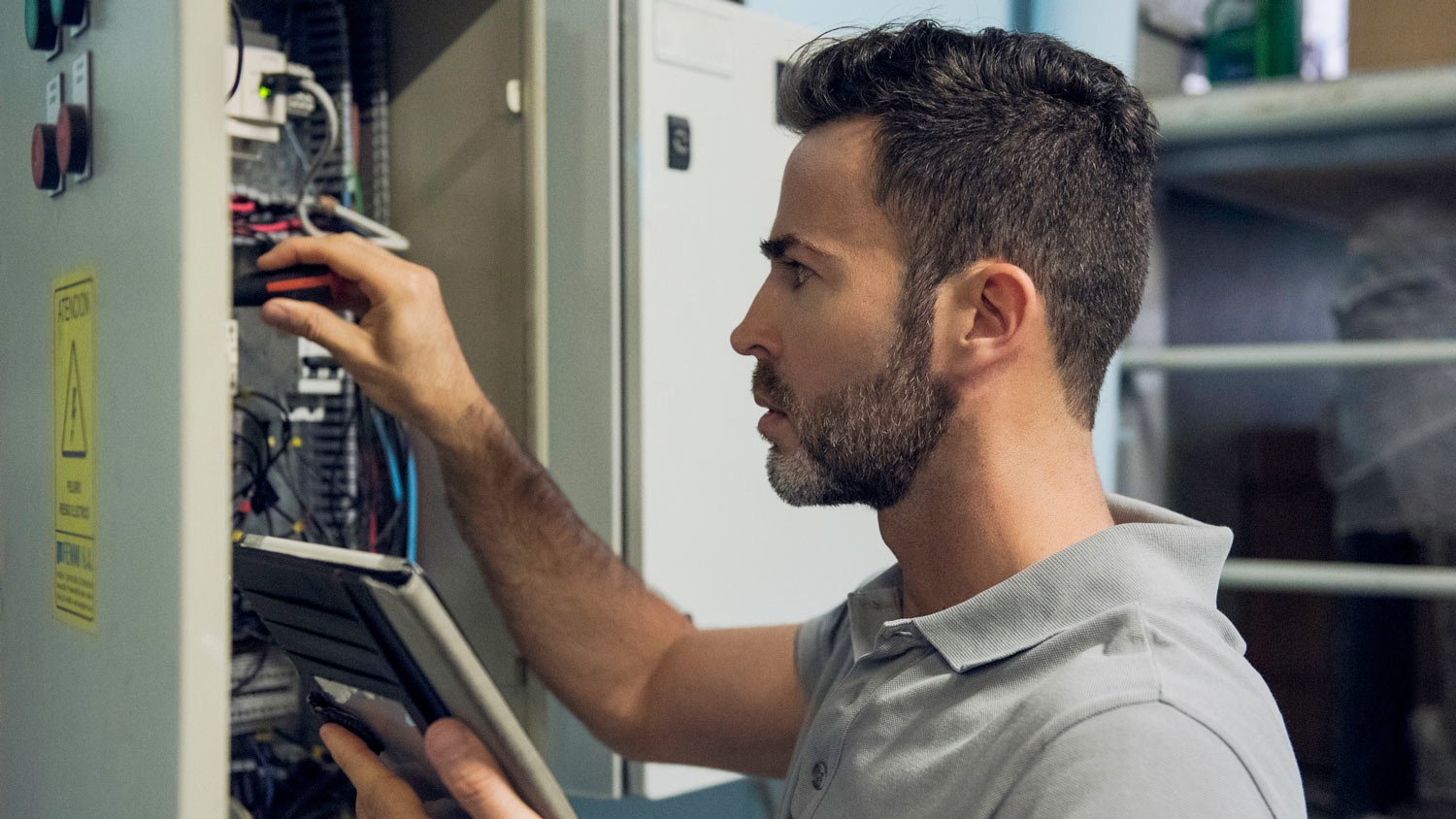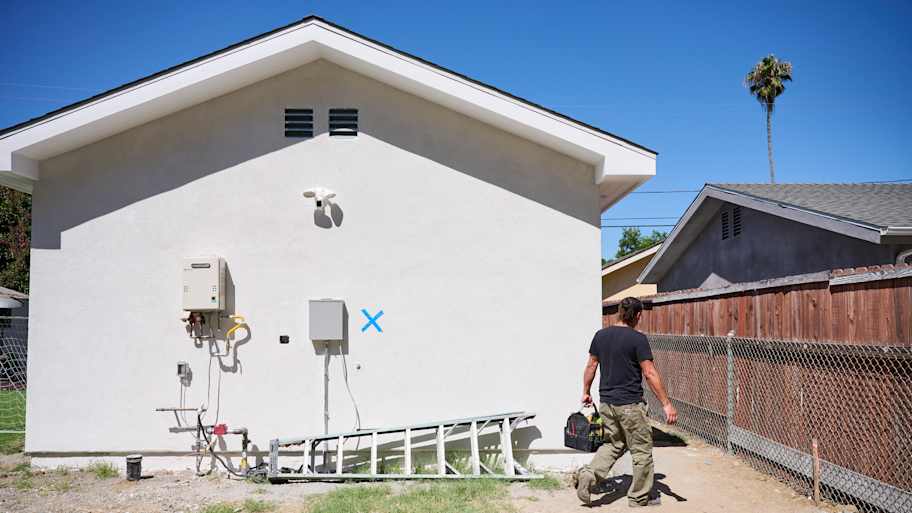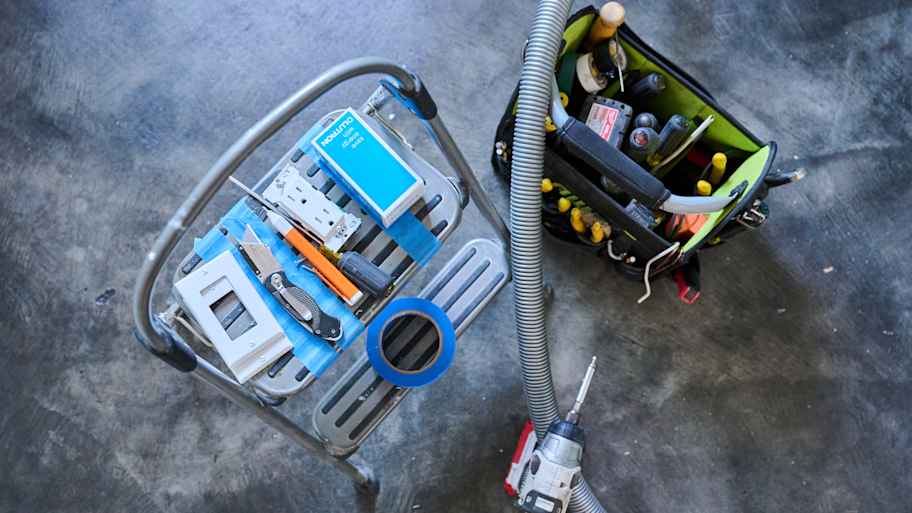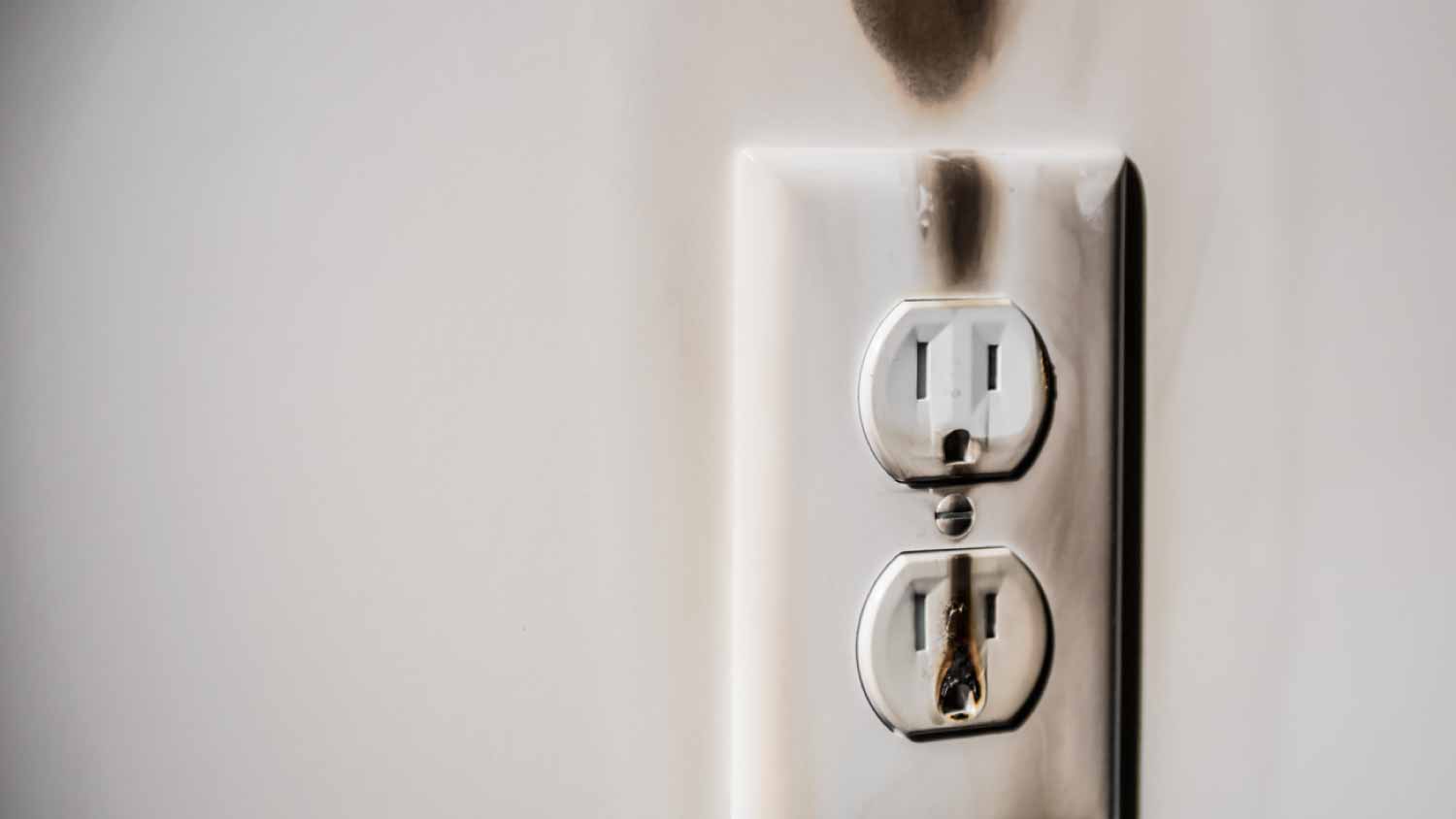Should You Repair or Replace Your Circuit Breaker Panel: Here’s How To Decide
Because seven devices, five kitchen appliances, and three TVs are a lot for one system to handle


You’ve got to give it to your circuit breaker panel. Every day, the system juggles the laundry machine, your stovetop, a couple of TVs, your heating system, and your bedside lamp—simultaneously and (usually) with ease. So when the microwave shuts down 30 seconds into a reheat, you need to know whether it’s time to repair or replace the circuit breaker panel. A flip of the switch just isn’t enough sometimes. Here’s how to decide on your next course of action.
Diagnosing Common Electrical Panel Problems
Electrical breaker systems often fail in old and new homes due to wear and tear, improper installation, cheap components, or faulty wiring. Here are a few signs that your circuit breaker panel needs a repair or replacement:
You just completed a home renovation that requires more power
Your panel is older than 25 years (these aren't up to modern electrical building codes)
The panel feels hot to the touch
Your fuse box is worn or rusted
You notice a burning smell from the electrical panel
Your lights flicker often
You hear buzzing or crackling noises from outlets
You have scorch marks around outlets or the panel
Reasons To Replace Your Breaker

Sometimes, the choice is made for you. Repairs can only go so far, especially if you live in an older home or have a lower power panel. Modern-day devices require more power—anywhere between 200 to 400 amps to properly run your electronics and appliances. Upgrades to your system are a bigger lift, usually requiring total replacement.
If your panel has incurred water damage or experienced an electrical overload that fries your breaker, it’s usually beyond repair. Lastly, if your circuit breaker box or fuse box is more than 25 years old, you should spring for a replacement panel.
Benefits of Replacing an Electrical Panel
The most significant advantage to replacing your breaker is safety. Outdated and malfunctioning electricals with poor connections pose fire risks. Outside of safety, there are many other reasons to replace or upgrade your circuit breaker box:
You can add more outlets or large appliances to your home with a breaker that can support more amps
You can move your electrical panel(s) to a safer or more convenient location
You can strengthen your electrical power supply and stop flickering lights or brown-outs
It can help decrease energy bills (dated fuse boxes or breakers are less efficient)
When you replace your electrical panel, you combine updated technology with more safety for your household. (Most insurers will throw in a discount for the added safety when you upgrade a system in your home.)
Costs to Upgrade Your Electrical Panel
The average cost to replace a circuit breaker box is around $1,100, much higher than repairing a panel. It can cost anywhere from $750 to $2,000 on average for a new 200-amp electrical panel. If you work from home or want to run high-power appliances, you might need more power to do so. The price for upgraded power, say 400 amps, runs anywhere from $1,500 to $4,000. Most homeowners find the benefits of a fully functioning home outweigh the steep replacement costs.
Difficulty of Replacing Your Circuit Breaker Panel
Whether you plan to repair or replace your panel, you’ll need to enlist the help of a qualified electrician. Intricate electrical work is not often a responsible DIY project, as tinkering with these systems can also uncover other related issues such as:
Worn outlets
Outdated wiring and fixtures
Damaged circuits
Make peace with the fact that a replacement will be a longer, more complex project no matter how you spin it, as electricians will need to complete work that can accommodate your unique needs and is up to code.
Time Required To Replace Your Panel
The size, location in your home, and type of circuit breaker box you have all influence the cost of replacing it, along with the complexity of the fix or replacement and associated labor.
Replacing a circuit breaker box usually takes around four to eight hours per panel, but moving panels or adding amps can add to the project timeframe and labor fees. That said, it’s usually easier to tack this additional work during a replacement as opposed to a repair.
Reasons to Repair a Circuit Breaker

Sometimes your electrical woes are merely the byproduct of a loose or damaged wire. While this is usually a quicker, more budget-friendly fix, it’s not something to fiddle with. Wiring issues within your breaker box are a safety hazard and should be inspected and repaired fast.
Most repairs fall under repeated tripped circuit breakers and overloaded or blown fuses. These types of malfunctions require repair only. An electrician will assess the situation and determine what actions are needed to fix the issue. Usually, this involves rewiring the circuit breaker panel, tightening connections, or replacing breakers.
If you can reset your circuit breaker, then there’s no need for repair. But you’ll need to consult a pro right away if tripping becomes more frequent.
Benefits of Repairing a Circuit Breaker Panel
It’s a cheaper solution: Fixing a simple breaker like the ones described above can run you $100 to $200 for the fix, nearly $1,000 less than replacement fees.
It’s a faster project: An easy fix with wiring connections could take as little as a couple of hours.
Repairing vs. Replacing Your Circuit Breaker: Which One Will It Be?
Technical repairs such as these warrant a professional opinion. These guidelines can help you plan for the right solution, but you’ll ultimately want to consult a licensed electrician near you to finalize your repair or replacement strategy. When it comes time to decide whether the circuit breaker panel needs repair or replacement, consider the following:
Your budget
Your time constraints
Whether you want to move panels or add amps
The age of your circuit breaker panel or fuse box
The age of your home
The frequency in which you experience tripped breakers or flickering lights
Your current (and future) electrical needs





- Home Generator Repair
- Lamp Repair
- Electric Repair
- Generator Installation
- TV Antenna Services
- Emergency Electricians
- Commercial Electricians
- Attic Fan Installation
- Attic Fan Repair
- Exhaust Fan Installation
- Electric Inspectors
- Subcontractors
- Electrical Construction
- EV Charger Installer
- Chandelier Installation
- Doorbell Installation
- Bathroom Fan Installation
- Ring Installers
- Electrical Panel Upgrade
- Is It Dangerous If a Circuit Breaker Keeps Tripping?
- How to Replace a Circuit Breaker: A Complete Guide
- How to Tell if a Circuit Breaker Is Bad (and What to Do About It)
- 5 Reasons Why Your Appliance Keeps Tripping Your Circuit Breaker
- How to Tell If a Breaker Is Tripped: Everything You Need to Know
- Why My Breaker Switch Won’t Stay On and How to Fix It
- Does Your AC Circuit Breaker Keep Tripping? Here’s Who to Call
- How to Fix a Short Circuit in Your Home
- How Does a Circuit Breaker Work?
- Top Reasons Your Oven Keeps Tripping the Circuit Breaker










